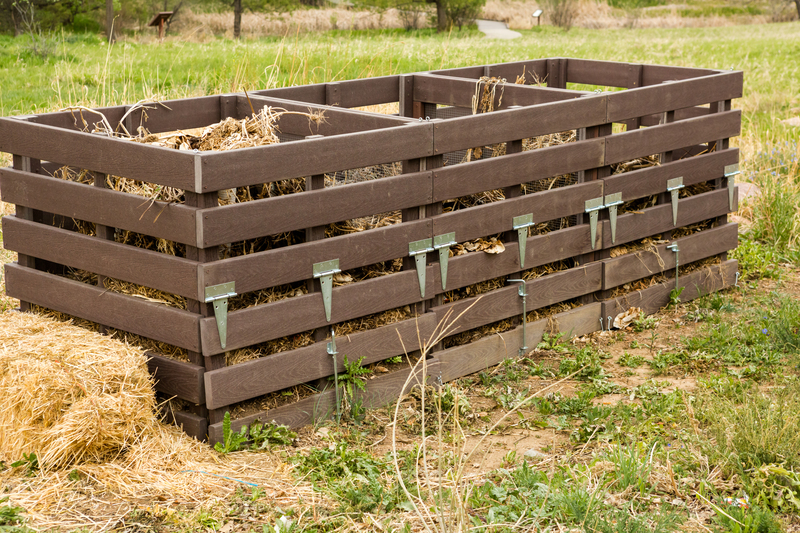Thames River's Battle with Plastic Waste
Posted on 17/10/2025
Thames River's Battle with Plastic Waste
The Thames River, London's iconic waterway, has long been a vital artery of commerce, culture, and biodiversity. However, in recent years, it has faced increasing challenges, primarily from plastic waste. Plastic pollution, escalating at an alarming rate, poses severe risks to the river's ecosystem and the species that inhabit it. This article delves into Thames River's struggle against plastic waste, highlights the pros and cons, offers actionable tips, and outlines key takeaways and a concluding perspective on this pressing issue.
The Scale of the Problem
Plastic waste in the Thames has reached staggering levels. According to recent studies, thousands of plastic bottles and bags, along with smaller microplastics, are found in the river every day. This not only tarnishes the river's aesthetic but also threatens the marine life that depends on this habitat. Species such as seals, fish, and various bird species are at risk of ingesting or becoming entangled in plastic debris.

Impact on Wildlife and Ecosystem
Plastic waste disrupts the delicate balance of the Thames River ecosystem. Marine creatures often mistake plastic for food, leading to ingestion that can result in death or serious injury. Birds and fish consuming plastic are unable to digest it, leading to internal blockages and malnutrition. Additionally, microplastics, tiny fragments of degraded plastic, permeate the riverbed and surrounding environment, gradually leaching harmful chemicals.
Human Contributions and Consequences
The sources of plastic pollution in the Thames are diverse, ranging from littering by individuals to industrial discharge. Every year, numerous plastic items are irresponsibly disposed of, ending up in the river. This pollution does not just affect wildlife; humans are also at risk. Microplastics can enter the food chain, eventually making their way onto our plates, posing health risks.
Efforts to Combat Plastic Pollution
Multiple initiatives have been launched to tackle the plastic waste crisis in the Thames. Cleanup campaigns mobilize volunteers to collect tonnes of plastic from the river's banks and surface. Non-profits and governmental organizations work in tandem to raise awareness and implement stricter regulations on plastic production and disposal. Innovative solutions, such as barriers to catch floating debris and biodegradable plastic substitutes, are also being explored.
Pros and Cons of Current Measures
Pros
- Increased awareness and community involvement in cleanup initiatives.
- Development of innovative solutions and technologies to reduce plastic waste.
- Implementation of stricter regulations to control plastic discharge.
Cons
- Cleanup efforts, while effective, only address the symptoms, not the root causes.
- Regulations are often difficult to enforce uniformly across different sectors.
- High cost and scalability challenges of new technologies and sustainable alternatives.
Practical Tips for Individuals
- Reduce single-use plastic consumption by opting for reusable items.
- Support legislation aimed at curbing plastic production and waste.
- Participate in local cleanup events to directly contribute to reducing plastic waste.
- Educate others about the impact of plastic pollution and promote sustainable practices.

Key Takeaways
- Plastic pollution in the Thames River is a severe and escalating issue.
- Wildlife and human populations are significantly affected by plastic waste.
- While initiatives and regulations are in place, more comprehensive actions are needed.
- Individual efforts can significantly contribute to reducing the plastic burden on the Thames.
Conclusion
The battle against plastic waste in the Thames River is far from over. While significant strides have been made in raising awareness and initiating cleanup and regulatory efforts, the true effectiveness lies in a collective, holistic approach. Combating this issue requires cooperation between governments, industries, and individuals. By adopting sustainable practices and supporting innovative solutions, we can help restore the beauty and health of the Thames River, ensuring its legacy for future generations.
Latest Posts
Cutting Down Waste in the Workplace


 office@benandjerry.org.uk
office@benandjerry.org.uk https://benandjerry.org.uk/
https://benandjerry.org.uk/

